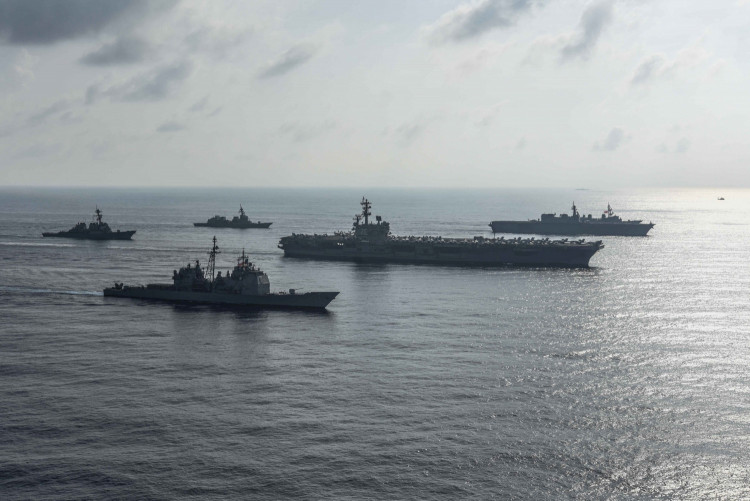The United States is deploying significant military resources to the Middle East as tensions escalate following the assassination of Hamas leader Ismail Haniyeh in Tehran earlier this week. The Pentagon announced the movement of a carrier strike group, a fighter squadron, and additional warships to the region in anticipation of Iranian retaliation.
The deployment marks one of the largest movements of US forces to the region since the early days of the Gaza war. It follows explicit threats from Iran's Supreme Leader Ayatollah Ali Khamenei to avenge the killing of Haniyeh, who was a senior political figure in Hamas. "We've heard the Supreme Leader loud and clear that he intends to avenge this killing," John Kirby, the strategic communications coordinator for the National Security Council, told CNN. "We can't just assume that we are also potentially going to be victims of that kind of an attack."
Defense Secretary Lloyd Austin has ordered the USS Abraham Lincoln strike group to replace the USS Theodore Roosevelt strike group currently operating in the Gulf of Oman. According to Pentagon deputy press secretary Sabrina Singh, the new deployments will include destroyers and cruisers capable of ballistic missile defense.
In addition to the naval assets, a fighter squadron will be sent to bolster the US military presence in the Middle East. This move comes as the US aims to enhance its defense capabilities and provide support to Israel amidst the growing threats from Iran and its proxies.
The heightened military presence is a clear signal of the US commitment to Israel's defense. "The United States' global defense is dynamic, and the Department of Defense retains the capability to deploy on short notice to meet evolving national security threats," Singh said in a statement.
In Israel, the mood is tense as the nation braces for potential Iranian retaliation. Reports of citizens stocking up on supplies have emerged, with the Victory supermarket chain noting a 30% increase in sales of essential goods such as canned food, pasta, and bottled water. The Jerusalem municipality has issued guidelines for residents to prepare bomb shelters in advance, advising that they must be able to reach them within 90 seconds in case of an attack.
Kuwaiti Airlines announced the suspension of all flights to Beirut, joining other international carriers like Air France and Lufthansa in canceling flights to the Lebanese capital due to the escalating situation. The travel disruptions reflect the broader regional anxiety as countries brace for potential fallout from the assassination.
The assassination of Ismail Haniyeh, who was seen as a significant figure in Hamas, has further inflamed an already volatile region. Haniyeh's death came just hours after Israel claimed to have killed Fuad Shukr, a top military commander of the Lebanese militant group Hezbollah. Israel has not officially commented on Haniyeh's assassination, but Prime Minister Benjamin Netanyahu has stated that Israel has delivered "crushing blows" to its enemies in recent days.
In response to the heightened tensions, Hezbollah leader Hassan Nasrallah hinted at a possible coordinated attack on Israel. "Because they have picked a fight with everyone, they don't know where the response will come from," Nasrallah said in a speech, suggesting that the retaliation could be multifaceted and potentially coordinated with other Iranian proxies in the region.
The US military's readiness has been put to the test before. In April, Iran launched a barrage of ballistic missiles and drones against Israel, which was intercepted by US destroyers in the eastern Mediterranean Sea. The new deployments aim to ensure that the US and its allies are prepared for any similar or larger-scale attacks.






